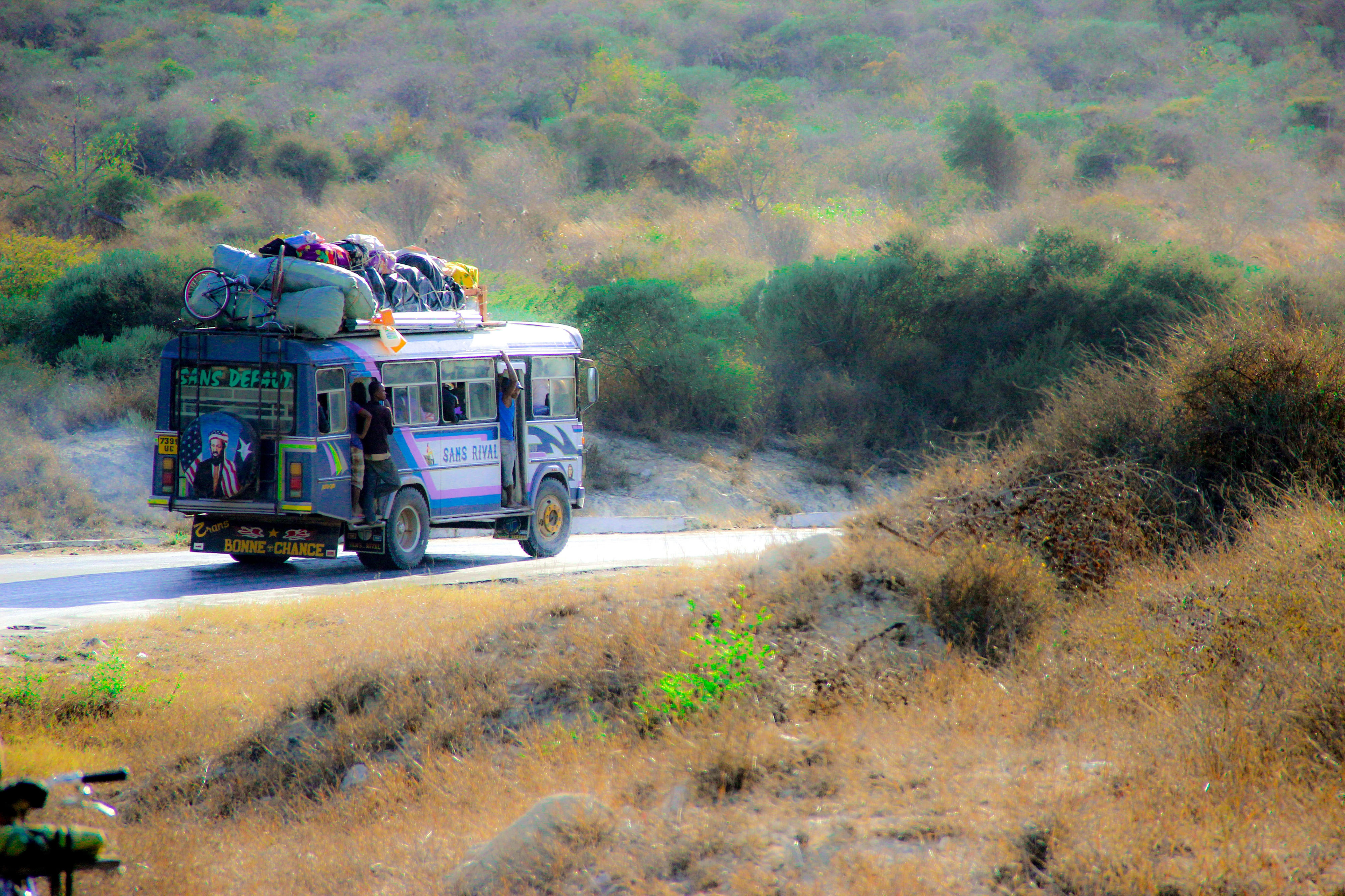Economic situation Hope for stabilisation
An intercity bus in Madagascar
When the government ran into financial difficulties and poverty increased, a more liberal economic policy was pursued again from the beginning of the 1980s, as part of International Monetary Fund programmes. Since independence, Madagascar's economic development has been characterised by phases of growth followed by political or economic crises that caused slumps. The share of people in extreme poverty has risen significantly since independence.
In the past few years, growth rates ranged from three to four per cent – just slightly above the population growth rate, which has been 2.4 per cent. In 2020, the COVID-19 pandemic caused a slump in Madagascar's economy, with gross domestic product dropping by 7.1 per cent. The economy has recovered a bit since then. In 2023, growth was about 4 per cent. However, economic growth has been dampened by the global impact of Russia's war of aggression against Ukraine.
Agricultural sector: almost exclusively subsistence farming
Madagascar's economy is dominated by agriculture. It employs about three quarters of the workforce but accounts for only around one fifth of gross domestic product. In some regions, promising approaches can be found, for instance the introduction of organic spice cultivation. Germany supports these activities through public-private partnerships (PPPs).
However, most agricultural land is used for subsistence farming. Major challenges include soil erosion and low productivity. Climate change is increasingly exacerbating the situation dramatically. In the 1970s, Madagascar was an exporter of rice, but now rice production is so low that it is no longer sufficient to meet domestic demand. Marketing often fails right at the beginning due to transport problems. Roads are in very poor condition, especially in rural areas. In the rainy season, entire regions are cut off from transport routes and communication networks.
There is also an urgent need to expand power supplies. Nationwide, only some 35 per cent of the people have access to electricity. In rural areas, that rate is even lower. Many of those who have electricity are not connected to the grid but only use small solar panels. At the same time, the government budget is under pressure because high levels of subsidies are provided to the country's largest power supply company. The government has adopted ambitious targets for the expansion of the power supply.
